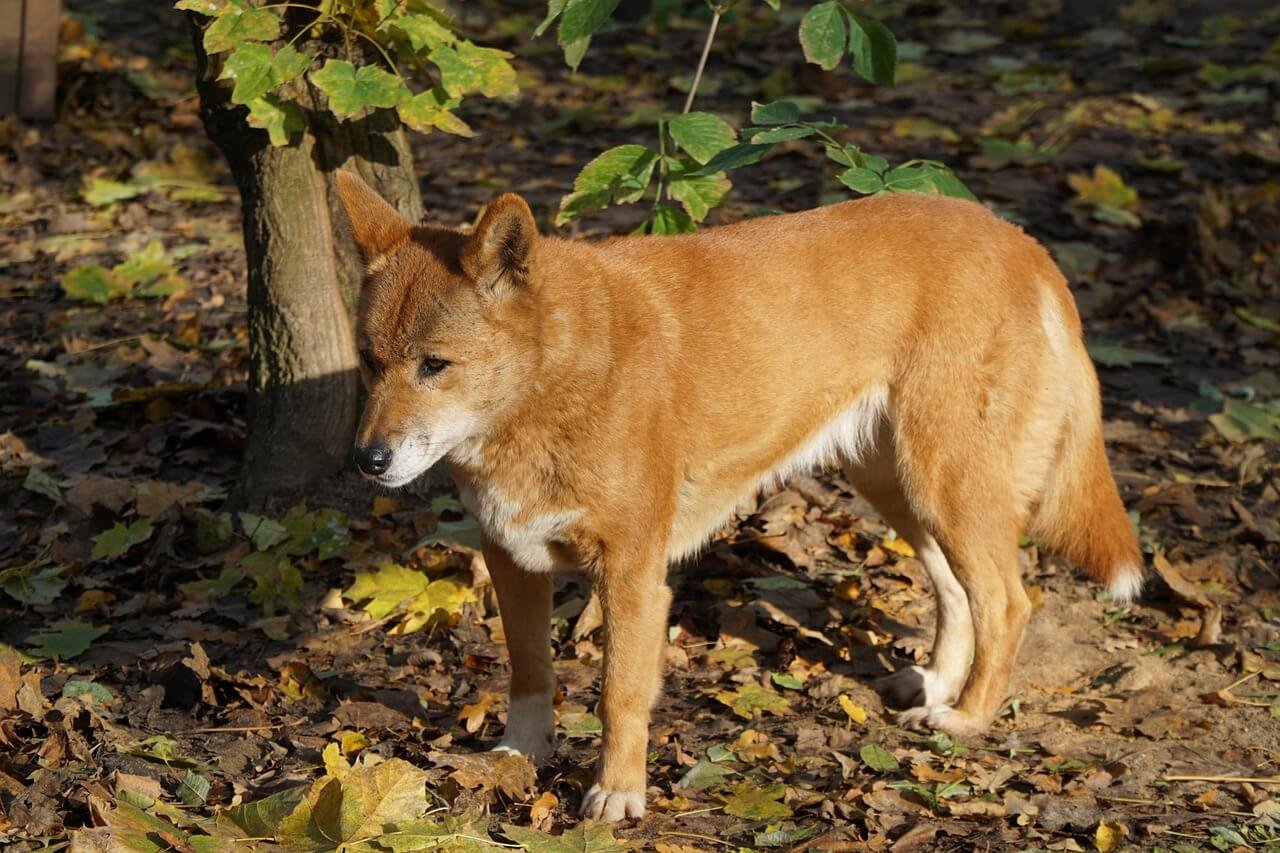Can You Neuter an Older Dog? Everything You Need to Know
Neutering is a common procedure that offers numerous health and behavioral benefits for dogs. While many pet owners opt to neuter their dogs at a young age, some wonder if it’s still possible—or even advisable—to neuter an older dog. The good news is that age alone is not necessarily a barrier to neutering. However, there are important factors to consider when deciding whether to proceed with the surgery for a senior or mature dog.
In this blog post, we’ll explore the pros and cons of neutering an older dog, potential risks, and how to ensure the process goes smoothly. By the end, you’ll have all the information you need to make an informed decision about your furry friend’s health and well-being.
Benefits of Neutering an Older Dog
Neutering an older dog can provide significant advantages, both for their health and behavior. Here are some key benefits to consider:
Reduced Risk of Certain Cancers:
Neutering eliminates the risk of testicular cancer and reduces the likelihood of prostate issues in male dogs.Behavioral Improvements:
Neutering can reduce aggressive tendencies, roaming behaviors, and marking habits, which may persist into adulthood.Improved Longevity:
Studies suggest that neutered dogs often live longer due to reduced risks of reproductive-related diseases.Prevention of Unwanted Litters:
Even older dogs can contribute to overpopulation if left intact, so neutering ensures no accidental breeding occurs.Enhanced Focus on Family:
Neutered dogs may become more affectionate and less distracted by hormonal urges, strengthening their bond with you.
While these benefits are compelling, it’s essential to weigh them against potential risks and your dog’s individual health status before proceeding.
Risks and Considerations When Neutering an Older Dog
While neutering is generally safe, older dogs may face additional risks due to age-related health conditions. Here are some factors to keep in mind:
Increased Anesthesia Risks:
Older dogs may have underlying health issues that make anesthesia more challenging, requiring thorough pre-surgical screening.Slower Recovery Time:
Senior dogs typically take longer to heal compared to younger ones, so post-operative care is crucial.Existing Health Conditions:
Conditions like heart disease, diabetes, or obesity can complicate surgery and recovery, necessitating careful evaluation by a vet.Weight Gain Potential:
Neutering can slow metabolism, increasing the risk of weight gain if diet and exercise aren’t adjusted accordingly.Cost Implications:
Pre-surgical tests, specialized care, and extended recovery needs may result in higher costs for neutering an older dog.
Understanding these considerations helps you prepare for the procedure and ensures your dog receives the best possible care.
Check this guide 👉How to Train an Older Dog: Best 7 Expert Tips!
Check this guide 👉Crate Training an Older Dog with Separation Anxiety: Best 7 Tips
Check this guide 👉How to Train an Older Dog to Use a Pee Pad: Best 7 Tips!

Pros of Neutering an Older Dog | Cons of Neutering an Older Dog |
|---|---|
Reduces risk of reproductive cancers | Increased anesthesia risks due to age |
Improves behavior and temperament | Slower recovery time compared to younger dogs |
Prevents unwanted litters | Potential for weight gain post-surgery |
Enhances focus on family and home | Higher costs due to pre-surgical testing |
Supports overall longevity | Existing health conditions may complicate surgery |
How to Prepare Your Older Dog for Neutering
Proper preparation is key to ensuring a smooth and successful neutering process for your older dog. Here are some steps to take before the surgery:
Schedule a Pre-Surgical Exam:
A thorough check-up, including blood work, helps identify any underlying health concerns that could affect anesthesia.Discuss Medication Adjustments:
If your dog is on medications for chronic conditions, consult your vet about whether adjustments are needed prior to surgery.Adjust Their Diet:
Ensure your dog is at a healthy weight before surgery, as excess fat can complicate anesthesia and recovery.Create a Comfortable Recovery Space:
Set up a quiet, clean area where your dog can rest and recover without disturbance after the procedure.Plan for Post-Op Care:
Arrange time off work or enlist help to monitor your dog closely during the initial recovery period.
Taking these proactive steps minimizes risks and sets the stage for a successful outcome.
Post-Operative Care Tips for an Older Dog
Caring for your older dog after neutering requires extra attention to ensure a smooth recovery. Here are some tips to guide you through the process:
Limit Physical Activity:
Restrict running, jumping, or rough play for at least two weeks to allow incisions to heal properly.Monitor the Incision Site:
Check daily for signs of infection, such as redness, swelling, discharge, or excessive licking.Administer Pain Medication as Directed:
Follow your vet’s instructions carefully to manage pain and prevent complications.Encourage Gentle Movement:
Short, controlled walks can aid circulation without straining the surgical site.Provide a Nutritious Diet:
Feed high-quality food in appropriate portions to support healing and maintain a healthy weight.
With diligent care, your older dog will recover comfortably and enjoy the long-term benefits of neutering.
Signs Your Older Dog May Benefit from Neutering
While neutering is often associated with younger dogs, older dogs can also benefit significantly from the procedure. Here are some signs that neutering might be a good option for your senior dog:
Aggressive or Dominant Behavior:
If your dog shows increased aggression toward other dogs or people, neutering may help reduce these tendencies.Roaming or Escaping:
Older dogs that still try to escape or wander in search of mates may benefit from the behavioral changes neutering brings.Reproductive Health Issues:
Dogs with recurring prostate problems or testicular abnormalities are prime candidates for neutering.Marking Territory Indoors:
Persistent indoor marking can be mitigated by neutering, even in older dogs.Unwanted Advances Toward Other Dogs:
Neutering can curb mounting behaviors and inappropriate interactions with other dogs.
If you notice any of these behaviors, discuss neutering with your vet to determine if it’s a suitable solution for your dog’s needs.
Common Misconceptions About Neutering Older Dogs
There are several myths surrounding neutering older dogs that can lead to hesitation or confusion. Clearing up these misconceptions can help you make an informed decision.
Misconception: Neutering Will Drastically Change My Dog’s Personality:
While neutering may reduce certain behaviors, your dog’s core personality traits will remain intact.Misconception: Older Dogs Can’t Handle Surgery:
With proper pre-surgical screening and care, most older dogs can safely undergo neutering.Misconception: It’s Too Late to See Benefits:
Even older dogs experience health and behavioral improvements after neutering, such as reduced cancer risks.Misconception: Neutering Always Leads to Weight Gain:
While metabolism may slow, weight gain can be managed with diet and exercise adjustments.Misconception: Neutering Is Only for Young Dogs:
Age is not a barrier; many older dogs are successfully neutered each year with positive outcomes.
Understanding these facts ensures you approach the decision with accurate information and realistic expectations.
Tips for Supporting Your Dog’s Emotional Well-Being After Neutering
Neutering can bring physical benefits, but it’s important to support your dog’s emotional well-being during recovery. Here are some ways to help them adjust emotionally:
Maintain Routine:
Stick to your dog’s usual schedule for feeding, walks, and playtime to provide stability and comfort.Offer Extra Affection:
Spend quality time petting, talking to, or simply being near your dog to reassure them during recovery.Introduce Gentle Play:
Once cleared by your vet, reintroduce light play to boost their mood and prevent boredom.Use Calming Aids if Needed:
Consider calming supplements or pheromone diffusers to ease anxiety during the healing process.Monitor for Behavioral Changes:
Keep an eye out for signs of stress or depression, such as withdrawal or loss of appetite, and consult your vet if needed.
By focusing on your dog’s emotional needs, you’ll help them feel secure and supported as they recover from surgery.
Frequently Asked Questions About Neutering Older Dogs
Is there an age limit for neutering a dog?
There’s no strict age limit, but older dogs require careful evaluation to determine if they’re healthy enough for surgery.
Will neutering change my dog’s personality?
Neutering may reduce certain behaviors, like aggression or roaming, but core personality traits remain unchanged.
How long does recovery take for an older dog?
Recovery typically takes 10–14 days, though older dogs may need slightly more time to heal fully.
Are there alternatives to neutering for older dogs?
In some cases, hormone-suppressing medications may be considered, but they don’t offer the same long-term benefits as surgery.
What should I do if my dog seems uncomfortable after surgery?
Contact your veterinarian immediately if your dog shows signs of pain, distress, or complications.
Final Thoughts: Making the Best Decision for Your Dog
Deciding whether to neuter an older dog is a personal choice that depends on your pet’s health, behavior, and lifestyle. While the procedure comes with certain risks, especially for senior dogs, the potential benefits—such as improved health and behavior—often outweigh the drawbacks. By consulting with your veterinarian and preparing thoroughly, you can ensure the process is as safe and stress-free as possible for your furry companion. Remember, neutering is just one aspect of responsible pet ownership; providing love, care, and attention throughout your dog’s life is what truly matters most. Whether you choose to proceed or not, your thoughtful consideration demonstrates your commitment to your dog’s happiness and well-being.
Pemphigus Erythematosus in Cats: Best 7 Expert Tips! – Learn to recognize symptoms, manage flare-ups, and improve your cat’s quality of life.
Pemphigus Erythematosus in Dogs: Best 7 Expert Tips! – Discover causes, symptoms, and treatment options to manage this autoimmune skin condition effectively.
Cat Tympanic Membrane: Best 7 Expert Tips! – Learn how to protect your cat’s eardrum, spot issues early, and ensure lifelong auditory health.
Dog Tympanic Membrane: Best 7 Expert Tips! – Learn how to protect your dog’s eardrum, spot issues early, and ensure lifelong ear health with expert advice.





